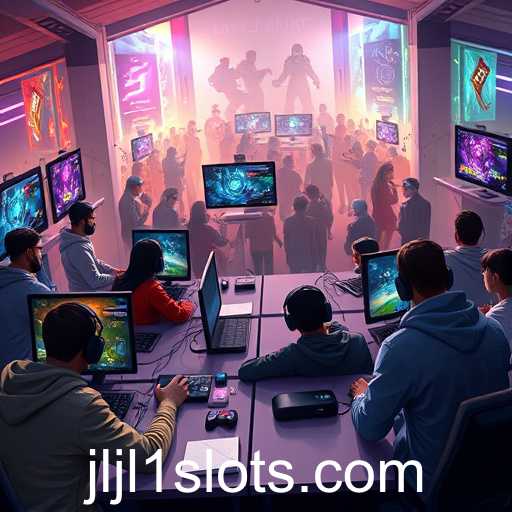An exploration of the growing influence of online gaming communities and their impact on game development and player interaction.
As we navigate through the digital age, the landscape of entertainment continues to evolve, and online gaming has become a significant part of this transformation. The year 2025 marks yet another milestone in this ever-expanding realm. Online platforms, such as the English game website known by the keyword 'jljl1', have emerged as social hubs where players connect, compete, and collaborate within immersive digital environments.
The popularity of online gaming communities has surged as developers increasingly incorporate community feedback into game updates and new releases. This dynamic interaction between the gaming industry and its audience has not only enhanced gameplay experiences but also fostered a sense of belonging among gamers worldwide. Games are no longer just about winning or losing; they are about forming relationships and sharing experiences with others, transcending geographical boundaries.
Reports indicate that platforms like 'jljl1' have adapted rapidly to the demands of a more engaged audience. By hosting live events, developers can gauge player reactions and incorporate immediate feedback into their gaming worlds. This innovative approach has resulted in more polished and satisfying gaming experiences, reflecting a sweeping trend where the player’s voice holds sway over product evolution.
Commentators argue that the power dynamics in the gaming world are shifting, with the community's role becoming more pronounced. The barriers between developers and players are eroding, leading to a symbiotic relationship that pushes the boundaries of what's possible within digital entertainment. Social media and streaming services have further amplified this dynamic, allowing players to share their achievements and strategies with an audience that spans the globe.
It is evident that the future of gaming is inherently tied to the strength and vibrancy of its communities. As platforms like 'jljl1' continue to link players from diverse backgrounds, the potential for groundbreaking developments in game design and community engagement grows. Collaborations between players and developers are becoming more commonplace, promising a new era where games are crafted to cater not only to the market but also to the players who breathe life into digital worlds.




